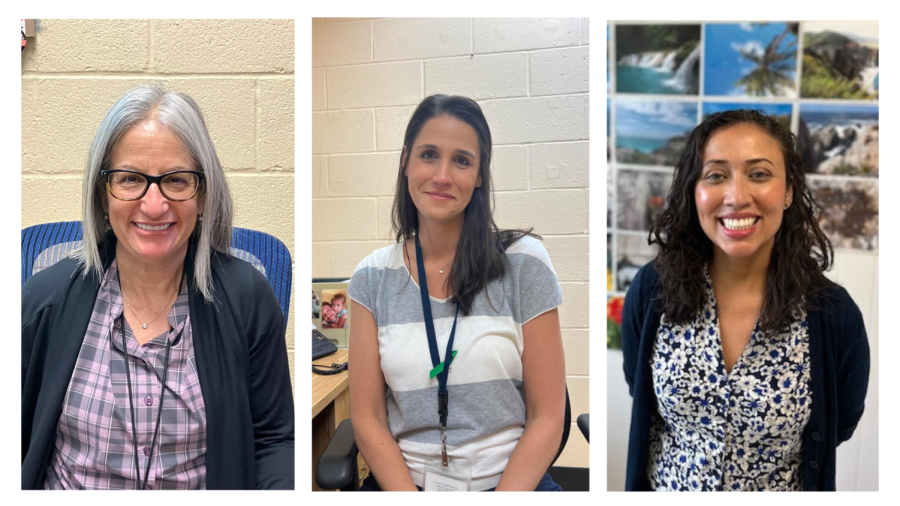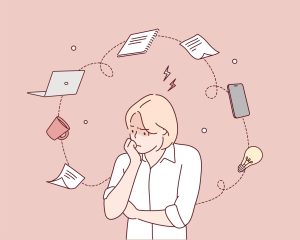Meet South High’s Mental Health Counselors
June 5, 2023
It’s okay to not be okay.
Below is an interview with the mental health counselors available here at Great Neck South High. Hopefully, this will not only provide an insight into each counselor, but make everyone feel comfortable going to them to seek help.
The offices of the social worker (Joan Greenberg) and psychologists (Lauren Ferguson and Jacqueline Scott) are all located on the right down the long hallway in guidance.
Can you introduce yourself?
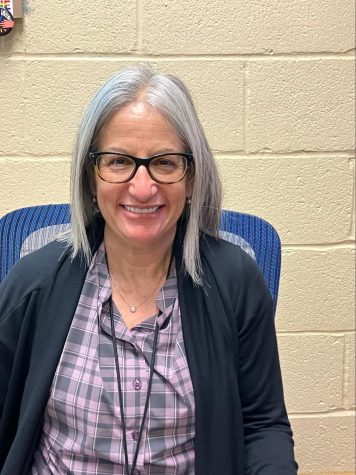
Joan Greenberg: My name is Joan Greenberg. I’m a trained psychiatric social worker. I have a clinical license. I’ve been doing this for forty years. I worked at outpatient mental health for about twenty years and then I came to schools. I’m a school social worker. I’m an adjunct professor at NYU. I teach NSW students social work practice. My hobbies: I love gardening. I love weeding. I like being with my family. I like biking. I like Oprah. I like watching sports. I like a lot of things.
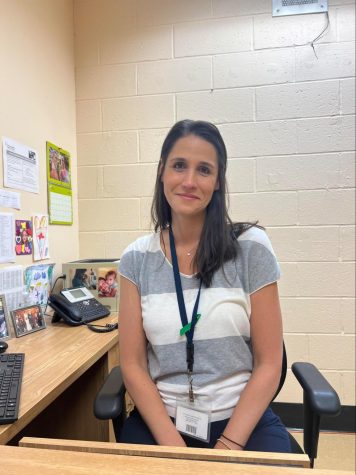
Lauren Ferguson: I’m Lauren Ferguson. I’m one of the school psychologists here at South High School. Hobbies, that’s a loaded question. You think I have time for hobbies? I recently discovered my love with reading. I spent all of Mother’s Day inside reading. I’m happy to read anything when I actually have time to sit and read. I like fiction books mostly. I’ve recently moved out of the city and out into the burbs, and so getting into hiking now that I live near really cool hiking trails. So exploring the area I live now and getting out and hiking.
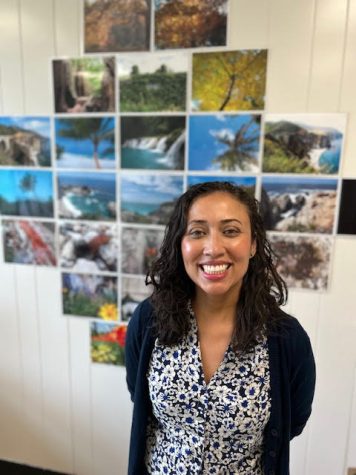
Jacqueline Scott: I’m Jacqueline Scott, professional school psychologist. Hobbies: so I love hiking, traveling, nature, Science, lots of exercise. I love to exercise. Walks. Hanging out with friends. I love food. Anything that’s bringing us together. I like having an experience together whether it’s listening to music together, hanging out with friends and enjoying having a good time, or eating some yummy food together.
What does mental health mean to you?
Joan Greenberg: Mental health to me is part of the body. Like your body needs to be healthy and your mind is another part of yourself that needs to be nourished, fed, taken care of. So it really means looking at yourself as a complete person with physical and emotional needs. They’re doing so much research now about the mind-body connection that it’s so important that we pay attention to it.
Lauren Ferguson: I feel like as a psychologist, when people hear the word mental health my broad generalization is that people have a negative association. Like mental health means something’s wrong. If people talk about their mental health, there’s something wrong with me or I can’t manage things that are going on, but mental health is really just how we’re doing emotionally. How we’re feeling. Much like our physical health, we could be feeling great or we can be feeling happy, positive, calm, and sometimes our mental health is not in a good place and we can be stressed and anxious and struggling to cope. Mental health is really just how we’re feeling on any given day and much like our physical health, sometimes we’re feeling better and sometimes we’re not feeling great.
Jacqueline Scott: So mental health for me means reminding yourself that you are human. That we need to eat, breathe, sleep, take care of ourselves, and not only think about one particular thing. Our academics are important, but they don’t define us. They don’t make me Jacky and they don’t make you Grace. You’re a wonderful human being all around. I know that without even knowing you just like I’m a really great person all around because my job, my profession, doesn’t define me either. I do a lot of good work here, but it doesn’t define me.
Why did you choose to become a psychologist or social worker?
Joan Greenberg: I started out as a biology teacher, and I realized everyone wanted to speak with me and share their issues, and growing up I had people help me when I had issues and I really enjoyed working with people to support them. I like hearing people’s lived experiences and how we can help it, but as a social worker I have to tell you when I think about mental health, I also think about how the environment impacts mental health. Like different things that occur in society. We have biases against all different folks and there’s a lot of inequalities that really contribute to people’s mental health. So it’s not only an internal thing, mental health. It’s responding to the dysfunction in society.
Lauren Ferguson: Truthfully, I initially didn’t think I wanted to be a psychologist. I thought I wanted to be a lawyer, and I worked in a law firm many years after college, and then realized that I did not want to be a lawyer. I was a psych major in college. I’ve just always loved the study of psychology and getting into school psychology was kind of a way to kind of marry my interest in psychology and something I really love studying with my passion for working with kids. I always had jobs growing up where I worked with kids. I was a babysitter, and I was a camp counselor. School psychology let me put those two things together and to continue to study psychology, but do it in a way that was going to allow me to work everyday with students.
Jacqueline Scott: It was so long ago it’s almost hard to remember. I mean I’ve been doing it for a really, really long time. I had good friends. I did a lot of research when I was in undergrad and grad with middle school kids, and we followed them into high school. It was a longitudinal study, and I just really enjoyed not only watching the children grow, but also seeing what their patterns were in the study we were doing. Just watching them evolve and grow and some who we tried to predict the patterns to and they didn’t and figuring out why. So just understanding students’ minds and perceptions and ability to regulate their emotions.
What is a psychologist or social worker?
Joan Greenberg: We are called Social Justice Change Agents. That’s what we are. So our job is to look at the systems and change them for the better. We do counseling. We do family work. We can do many different things. We’re therapists. In this setting, I’m someone you can come for anything. Like any kind of emotional problem. Any kind of anxiety, sadness, anything. In addition, I try to help economically. If you have other issues. Maybe you need something for someone. I can connect you to different services. That’s another one of my jobs. For instance, if a family’s in need, I work with parents. We work with the entire family.
Lauren Ferguson: A psychologist, in the school setting at least, is a mental health counselor who is here for support. For school based counseling. We see students who have mandated counseling; it’s part of a program that they have in school. We see any student who wants to come see us. A psychologist in a school setting also does testing. We’re kind of working with students of various needs. Whether it’s mental health or learning issues.
Jacqueline Scott: So in the school forum, I’ll help students who are either going through a difficult time, a challenging time in school, and maybe sometimes even at home. But also students who are having difficulties with learning and acquiring information. Figuring out how to best help them if they have any areas of need, and how to best support them and figure those supports out.
How would you define mental health?
Joan Greenberg: Mental health is the way somebody travels the world. It’s how you manage your life. How you view things. How you think about things. How you make your choices. That’s all in your mental health, and if you don’t have the toolbox of skills to manage all the different emotions and thoughts that you have, it really comes out in different places. For instance, we just went through a pandemic. One of the most important factors in mental health is connecting to others. That’s the key to good mental health: to be connected. So whether you’re connected with friends, activities, whatever, family. We just went through two and a half years of people, especially adolescents at their most social stage, with a big destruction that raised anxiety. People didn’t learn skills to be students. They lost interpersonal skills. So now we’re really just helping people come back because I have seen more people who are depressed, anxious in the past than I ever have. It’s really on the rise.
Lauren Ferguson: Mental health is how we’re feeling. It’s how we’re doing and how we’re feeling on any given day, and that changes throughout the day. Sometimes the way we’re feeling at the beginning of the day is not how we’re feeling at the end of the day. It really also ecompasses our coping skills and coping strategies and how we manage days we’re not feeling so great. We all have things that we struggle with, so part of our mental health is also how we navigate those challenges, and what our coping skills are and how we’re able to get through the days and the things that are harder and more difficult.
Jacqueline Scott: I think that mental health, if I in my own words would have to define it, would be the ability to balance, regulate your everyday needs.
What are some reasons a student might go to your office?
Joan Greenberg: Any issue. Like you broke up with a boyfriend. You got a bad grade on the test. I’m feeling sad today. I’m right next to the nurse’s office, so sometimes people come in with a headache, but really their issue is more emotional than physical. It’s playing out physically, but it’s really an emotional issue. So any kind of issue like the prom. Anything. It can be very simple like I’m having a bad day and my friends aren’t talking to me, or I got a lousy text to my parents are going through a divorce through I’m suicidal through I’m struggling with an eating disorder, self harm. It could be anything.
Lauren Ferguson: Students come for a variety of reasons. Sometimes the student comes because the teacher notices that they’re upset, or a student says something or does something that raises some concern for a teacher and they may be worried about them. So a teacher might ask a student to come to my office. Students on their own might come to my office if they just feel like they need someone to talk to. They’re having a hard day or more than just a hard day, but they’re having trouble coping and they’re struggling with how they’re feeling and they need a place to sit. They need a place where they feel safe and feel like they can just come and either talk or just sit and be. They need some support with something. They need to talk about how to manage anxiety. How to manage stress. How to manage all the demands that all you guys have on your plate on any given day.
Jacqueline Scott: So if they’re having a tough time at home. If they’re having a tough time with a teacher. If there’s major exams coming up. If they’re just feeling overwhelmingly anxious. If they’re feeling overwhelmingly stressed. If they’re feeling overwhelmingly angry that they’re going to want to be physical with someone and they need a place to cool down. If they want a quiet space. A quiet space where they could just quietly draw here. A quiet space where they just want to listen to their music. We don’t have to talk. And the really nice ones that I really like, I like all of them, but the really nice ones are just for good news. Hey, remember when I said I really struggling in that test and I totally thought I was going to bomb it or whatever, but look I got above. I’m like YAYYY. So those celebrations too. The celebrating the success. I love those. Keep coming for those. I’m okay to help out with the other ones too, but it’s just nice to get a little victory.
If a student were to go to your office for help, can you describe the process?
Joan Greenberg: First I would introduce myself. I would let them know about confidentiality, which is really important to know that anything that’s said in my office, unless you’re hurting yourself or hurting someone else or someone is hurting you, it’s confidential. So if someone comes in as suicidal, you do have to do somethings to make sure that student it not actively suicidal. But if you came into my office, I would explain that all to you so you would know the parameters. So everything else is confidential.
Lauren Ferguson: So there’s no real process. Sometimes I get emails from students. A student can just pop their head into my office really. If I’m not with someone else or I’m not in a meeting, a student can come at that moment if they need to talk to somebody.
Jacqueline Scott: If it’s an emergency, you are certainly welcome to walk in. I may or may not be available, but depending on the circumstances or what I’m doing, if it’s something that I can allow myself to excuse myself to help the person, I will. If it’s totally something I can’t, I’ll help that student either get to a quiet spot if they need to for a few minutes, if I have a colleague who’s available and who may be able to help, or we can schedule another time to just meet while I wrap up whatever I can’t help them with right now. Typically if they want to, students will send me an email.
What would you say to students who need help, but are reluctant to reach out?
Joan Greenberg: I understand that there are cultural factors and shame issues. I would say give it a try and the good thing is let’s say you come talk to me and I’m not your cup of tea, there’s two other people. Sometimes some people benefit with other people. Sometimes people connect differently. I would say what do you have to lose? Nothing. You’ll get a cup of tea, a piece of chocolate. It’s not a dangerous place. We’re really here to provide support and comfort and just help you get through it. It’s not easy to be an adolescent. Now, you got all these other factors on it that just made it harder, so it’s really escalated a lot of issues, and I think families are under a lot of stress too, so it’s like a ripple down. There’s a lot of stuff going on in the country, so there’s a lot of ripple effects. That affects people a lot.
Lauren Ferguson: I would say come. I try my hardest to make this a safe, non-judgemental space. I hope that a student feels like if something is going on, then they would feel comfortable coming up. Sometimes they say bring a friend, if that makes you feel more comfortable, but try to come and ask for help. If it’s not me, go to your guidance counselor. Everyone has a guidance counselor. If there’s someone in this building and if it’s not me or a guidance counselor. If there’s some adult in this building that you feel comfortable with, talk to them. Like I said, I really try to make this a comfortable place. I try to make it an open space where students can pop in whenever they need to. If you come and you never want to come back again, that’s okay too. That’s okay, but if there’s something on your mind, if there’s something that you’re struggling with, if you feel like you need somebody to talk to, that’s why we’re here.
Jacqueline Scott: I’d say don’t rule anything out until you try it. That’s the main thing with everything in life. Don’t rule something like oh that’s not for me oh I don’t like it oh I don’t need that oh I don’t think I can use that. Just try it.
Why do you think students don’t seek help?
Joan Greenburg: Maybe they don’t know about it. Maybe they might come from a family or social structure that feels like that’s shameful, that’s private we’re not supposed to talk about this stuff. Maybe they had a bad experience with somebody. That’s another reason. I don’t know because I find so many people come up. We’re not struggling for business. We’re busy. It’s not like nobody is coming. We’re really busy. There are days when I don’t have a free period because people just come and there are other days that are not.
Lauren Ferguson: There are probably some students who don’t realize there are psychologists and a social worker up here, and that there are mental health staff up here who can be available to talk to. I think some students might be afraid, thinking what does it mean if I talk to somebody? What if I share something? What does that mean? Where is that information going to go? I think some students just aren’t comfortable opening and sharing their feelings just yet, so I think there are a lot of reasons students might not come up here. I hope that one of them is that they don’t know that we’re here. They don’t know how to access us. That was part of the reason for doing that [gym] video. Everybody knows that they have a guidance counselor, but not everyone is aware that there are other mental health staff.
Jacqueline Scott: I’m still trying to figure that out. I don’t know. I mean I’ve asked a lot of students who come for the first time. I asked them is there anything more we can do? We’re a resource right here, but I don’t know why. Maybe classes are important. Maybe they don’t have a lunch. Maybe they don’t have a free. Maybe they like their gym too much. I don’t know, but all we can do is keep trying to say hey we’re here.
When are parents brought into the conversation?
Joan Greenberg: Hurting themselves, suicidal, or somebody is hurting them. So if somebody came in and told me that their parents were beating them, I have to do something, but we do it in a way to help people, not to destroy them. It’s safety issues. If you’re not safe, we have to do something.
Lauren Ferguson: There’s no black and white answer to that. It’s really on a case-by-case basis. Just walking into the school psychologist’s office does not trigger a phone call home to a parent. Just so students understand that. There are going to be circumstances where if there is something going on with a student that is concerning to the point where we have to make a professional judgment that a parent needs to be aware or needs to be involved, then we will call a parent. I do my best to be as honest and upfront about that, so if something comes up in a conversation with a student and I’m like oh that really needs to be shared with a parent. To the best of my ability, I’m honest with students about that. I don’t try to hide that. Sometimes we call parents together if a student’s comfortable. If something concerning comes up with that student’s safety or wellbeing or another student’s safety and wellbeing, sometimes we do have to get parents involved.
Jacqueline Scott: So similarly to the [gym] video, so everything that’s said is confidential, but we have to break confidentiality when there is an issue about hurting. Hurting yourself or hurting others. And then we have to break confidentiality, to ensure that you’re safe and that other members of the student body are safe.
What are some warning signs to look out for in peers who are struggling with their mental health?
Joan Greenberg: When anybody changes their behavior, that’s a warning sign. For instance, so somebody who’s always kind of happy is sad. Somebody loses weight. Somebody gains weight. Crying. Irritability. We have a great community that people’s friends would show us things so we could intervene, because sometimes people are seeing things that we don’t see. If somebody you know keeps saying they want to kill themselves. It’s not just a bad day. Those would be another warning sign, but always a change. Hygiene change. Something different and you get the vibration from it.
Lauren Ferguson: There’s the kind of list that you kind of see all the time like noticeable changes in behavior. Noticeable changes in mood. A student who was kind of withdrawing from friends. Certain grade changes. Things where you say something seems off with John and we used to hang out all the time and now he won’t return my phone calls, or a student who was a good student and always got their work in, suddenly things are not coming in anymore and there are noticeable changes in mood and behavior and kind of interactions with people. Those are some things that are sometimes on the lookout for. A lot of the times it’s change in behavior.
Jacqueline Scott: We have to think about our everyday activities. You know your friends and how they function and everything. So when you start to see some changes in whether or not they’re not sleeping, they’re not eating as much, they’re eating too much, or they’re sleeping too much, sleeping too little. Those physical signs, also in terms of what they’re saying. If there’s little hints there that are much self loathing, self deprecating. Things that they say that just don’t seem right. You have to follow your gut.
Additionally, keep in mind the words of Ms. Greenberg: “The thing about mental health is that everybody struggles. Nobody goes through life without a cold. Nobody goes through life without a cut, so mental health struggling is a normative thing. So if you’re down one day that’s not abnormal, that might be the correct response to what’s happening. That’s your response. Whatever you feel is what you feel. It’s how you respond to it. It’s still okay to get support, it doesn’t mean you’re crazy. Talking to somebody doesn’t mean you’re crazy. It means you need another person to bounce things off and to hear you. Do some people have severe mental health problems? Absolutely. But there’s a whole continuum. Mental health is not an all or nothing thing. If you talk to somebody you’re crazy. No. I’m trying to figure out how to deal with stuff.”

